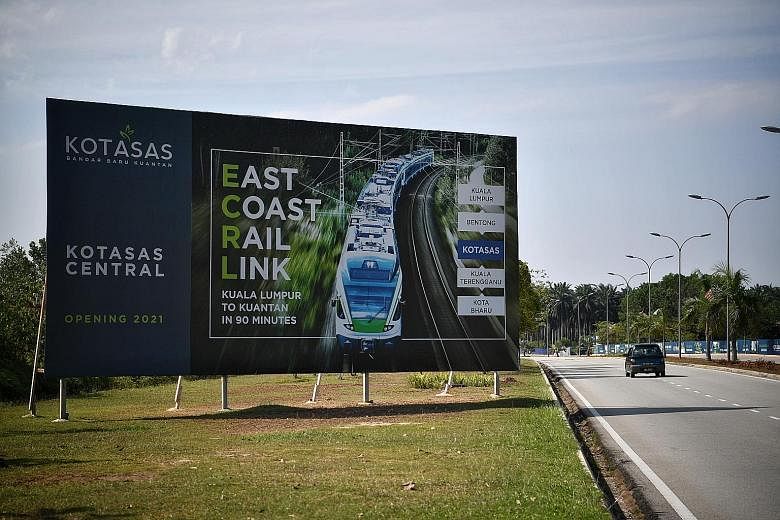The East Coast Rail Link (ECRL) was supposed to be the centrepiece of China's grand Belt and Road Initiative (BRI) in South-east Asia, linking ports on the east and west coasts of Peninsular Malaysia.
Instead, the project, which was recently resuscitated after being put on ice by Kuala Lumpur because of ballooning costs and corruption involving Malaysia's previous administration, has been held up by a new study as an example of the troubles that BRI projects face.
Already a subscriber? Log in
Read the full story and more at $9.90/month
Get exclusive reports and insights with more than 500 subscriber-only articles every month
ST One Digital
$9.90/month
No contract
ST app access on 1 mobile device
Unlock these benefits
All subscriber-only content on ST app and straitstimes.com
Easy access any time via ST app on 1 mobile device
E-paper with 2-week archive so you won't miss out on content that matters to you

